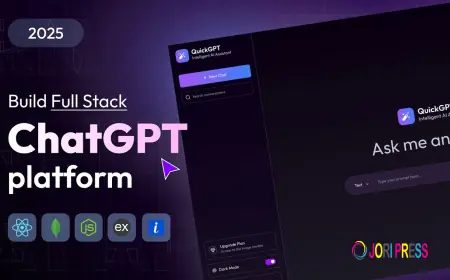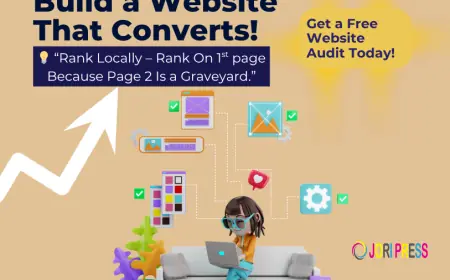Merging Fitness and Clinical Wellness: The Untapped Opportunity for Healthcare App Development Companies
Discover how healthcare app development companies are bridging the gap between fitness and clinical wellness, unlocking powerful opportunities for innovation, engagement, and better patient outcomes.
The lines between clinical healthcare and fitness are blurring — and for good reason. Preventive care, lifestyle medicine, and long-term wellness are now taking center stage in how we define health outcomes. This evolving definition creates a massive opportunity: mobile platforms that unify fitness, behavior tracking, and clinical insight into a seamless, personalized experience.
It’s no longer just about diagnosis or treatment — it’s about prevention, engagement, and sustained well-being. That’s why a forward-thinking healthcare app development company must now look beyond hospitals and labs. To thrive in this new era, it must embrace the strategy, design language, and behavioral science of a fitness app development company.
This convergence is no longer hypothetical. It’s the future of digital healthcare.
The Gap Between Fitness and Medicine
Historically, healthcare apps have focused on managing illness — while fitness apps aim to enhance vitality. But in the real world, these domains aren’t separate. A patient recovering from surgery needs exercise. A person with high blood pressure needs lifestyle changes. A diabetic patient needs daily activity tracking.
Despite this overlap, very few platforms unify clinical care and fitness within a single ecosystem. That’s the void an innovative healthcare app development company can fill.
Imagine one platform that tracks your medication, guides your workouts, alerts your physician, and supports your daily health goals — intelligently syncing everything in one place.
Why the Timing Is Right
In 2025, several shifts are creating the perfect conditions for this merger:
-
Wearables are ubiquitous: Smartwatches, rings, and trackers are collecting massive real-time health data, including heart rate variability, sleep stages, and movement.
-
Consumers expect personalization: Just like Spotify recommends playlists, users want health advice tailored to their habits and goals.
-
Healthcare is moving outside clinics: Remote patient monitoring, telehealth, and home-based diagnostics are becoming standard.
-
Behavioral health is mainstream: Mental fitness is now recognized as equally important as physical fitness.
The audience is ready. The technology is mature. What’s needed is vision — and collaboration between the healthcare app development company and the fitness app development company.
Key Areas Where Collaboration Creates Value
1. Holistic Chronic Disease Management
Managing diseases like diabetes or hypertension isn’t just about medication. It requires physical activity, stress management, and dietary consistency. A healthcare app development company can create a core platform, while leveraging fitness app development company expertise to build intuitive interfaces for meal logging, guided workouts, or mindfulness exercises.
This merger makes the platform more engaging, more sustainable — and ultimately, more effective.
2. Rehabilitation and Recovery Programs
Post-surgical or injury recovery often requires physical therapy, light movement, and gradual strength-building. Rather than sending patients home with paper instructions, healthcare apps can now deliver rehab plans that feel like a fitness journey — complete with progress indicators, motivational nudges, and real-time feedback.
By blending clinical objectives with fitness-oriented UX, the patient is more likely to stay consistent and recover faster.
3. Preventive Health Platforms
Prevention is no longer optional — it's the holy grail of healthcare. Predicting and preventing illness saves lives and cuts costs. Apps that track vitals, sleep, and activity can catch red flags early — but only if users engage regularly.
That’s where fitness app DNA is critical. Engagement is the specialty of the fitness app development company, and these design strategies — personalized goals, adaptive content, gamification — can supercharge preventive health efforts.
4. Mental and Emotional Well-being
Fitness apps have pioneered mindfulness, guided meditation, and digital coaching — features that now have strong clinical backing for improving heart health, immune response, and more.
A healthcare app development company can build on this, integrating mental wellness features directly into care pathways. Think of post-cancer recovery apps that include stress-reduction modules, or cardiac rehab platforms that offer anxiety coaching.
Real-World Case: Integrated Wellness Platform for Corporate Health
A global employer recently partnered with a healthcare app development company to create a corporate wellness solution. But instead of a traditional, metrics-heavy tool, the company brought in a fitness app development company to help design the user experience.
The result: an all-in-one platform that combines medical screenings, daily fitness challenges, sleep tracking, telehealth visits, and personalized coaching. Employees used it not just for checkups, but for real-time wellness engagement — resulting in a 35% reduction in sick days and a marked increase in preventive screenings.
This kind of platform doesn’t just manage health — it builds a culture of it.
Key Considerations for Development
If you're building an app that bridges the healthcare and fitness gap, here are five non-negotiables:
-
Regulatory Compliance: A healthcare app development company must embed HIPAA, GDPR, and data governance from day one.
-
Behavioral Design: Collaborate with a fitness app development company to incorporate user motivation loops and habit formation.
-
Data Interoperability: Ensure the app can pull and push data from EHRs, wearables, and remote monitoring devices.
-
Inclusive UX: Design for all user types — including older adults, patients with disabilities, and users new to mobile health.
-
Clinical Oversight: Integrate provider dashboards, telehealth workflows, and analytics for real-time clinician support.
Looking Ahead: The Rise of Hybrid Health Platforms
As healthcare goes hybrid — blending physical and virtual, clinical and consumer — the most successful apps will be those that adapt. A healthcare app development company that thinks only within clinical silos will miss the evolution already underway.
By learning from the user-first mindset of the fitness app development company, medical apps can evolve into lifestyle platforms — the kind that patients actually want to use every day, not just when something goes wrong.
Imagine:
-
AI-powered wellness coaches that know your medical history
-
Smart exercise routines that adapt to your cardiac condition
-
Alerts that tell you when you're veering off your preventive care goals
-
A single app that unifies health, fitness, mental well-being, and medical access
This isn't speculation — it's where the market is heading. And the innovators who build there first will define the next decade of healthcare.
Conclusion: A Unified Future of Health
The healthcare system of tomorrow won’t be confined to clinics, hospitals, or even wearable devices. It will live in intelligent, hybrid platforms that merge fitness and clinical care — personalized, predictive, and deeply human.
To succeed in this new paradigm, every healthcare app development company must break out of its traditional mold and embrace what a fitness app development company has long understood: health is daily, dynamic, and deeply individual.
The future belongs to those who can merge medical excellence with user-driven design — and build not just apps, but ecosystems of wellness.
What's Your Reaction?
 Like
0
Like
0
 Dislike
0
Dislike
0
 Love
0
Love
0
 Funny
0
Funny
0
 Angry
0
Angry
0
 Sad
0
Sad
0
 Wow
0
Wow
0


















































